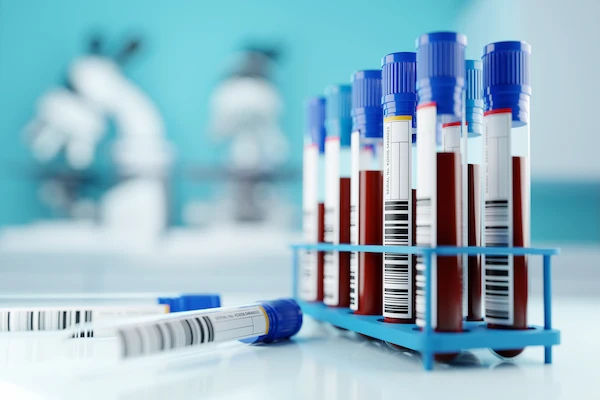Understanding Period Blood Clots and Their Treatment
Learn what period blood clots mean, when they’re normal, and when to seek medical help. Discover causes, symptoms, and treatment options for clot-heavy periods.

Written by Dr. Rohinipriyanka Pondugula
Reviewed by Dr. Md Yusuf Shareef MBBS
Last updated on 25th Aug, 2025

Periods are a natural part of a woman’s reproductive health, but sometimes, they can come with unexpected changes; like blood clots. If you’ve noticed thick, jelly-like clumps in your menstrual blood, you might wonder if it’s normal or a cause for concern. Let’s break it down in simple terms so you can understand what’s happening and when to seek help.
What Are Period Blood Clots?
Period blood clots are gel-like lumps of blood and tissue that pass from the uterus during menstruation. They can vary in size; from small flecks to larger, quarter-sized clumps. While small clots are usually normal, larger or frequent clots may indicate an underlying issue.
Why Do Blood Clots Form?
During your period, the uterus sheds its lining (endometrium), which mixes with blood. To prevent excessive bleeding, your body releases anticoagulants (substances that keep blood from clotting). However, if blood flow is heavy, these anticoagulants may not work fast enough, leading to clots.
When Are Blood Clots Normal?
Small clots (about the size of a dime or smaller) are common, especially on heavier flow days (usually the first two days of your period). This happens because:
Your flow is faster than your body’s ability to break it down.
You’ve been sitting or lying down for a while, allowing blood to pool before exiting.
When Should You Be Concerned?
While occasional small clots are normal, consult a doctor if you notice:
Large clots (bigger than a quarter).
Frequent clotting (multiple large clots in every period).
Heavy bleeding (soaking a pad/tampon every 1-2 hours).
Severe pain (beyond usual cramps).
Irregular periods (cycles shorter than 21 days or longer than 35 days).
These could be signs of an underlying condition that needs medical attention.
Possible Causes of Abnormal Blood Clots
Several health conditions can lead to excessive clotting:
1. Uterine Fibroids
Non-cancerous growths in the uterus that can cause heavy bleeding and large clots.
2. Endometriosis
A condition where uterine-like tissue grows outside the uterus, leading to painful, heavy periods with clots.
3. Polycystic Ovary Syndrome (PCOS)
Hormonal imbalances in PCOS can cause irregular, heavy periods with clotting.
4. Adenomyosis
When uterine lining tissue grows into the uterine muscle, resulting in painful, clot-heavy periods.
5. Hormonal Imbalances
Conditions like thyroid disorders or perimenopause can alter menstrual flow and clotting.
6. Miscarriage or Ectopic Pregnancy
Large clots with severe pain and heavy bleeding could indicate pregnancy complications.
How to Manage Period Blood Clots
If your clots are normal and not causing discomfort, no treatment is needed. However, if they’re bothersome, here are some ways to manage them:
Lifestyle & Home Remedies
Stay Hydrated – Drinking water helps maintain healthy blood flow.
Exercise Regularly – Light activities like walking can improve circulation.
Use Heat Therapy – A warm compress or heating pad can ease cramps.
Try Iron-Rich Foods – Heavy bleeding can lead to anemia; include spinach, lentils, and lean meats in your diet.
Medical Treatments
If clots are due to an underlying condition, your doctor may recommend:
Hormonal Birth Control (pills, IUDs) to regulate periods.
Nonsteroidal Anti-Inflammatory Drugs (NSAIDs) like ibuprofen to reduce bleeding.
Surgery (in severe cases like fibroids or endometriosis).
When to See a Doctor
Seek medical advice if you experience:
Prolonged heavy bleeding (lasting more than 7 days).
Dizziness, fatigue, or signs of anemia (pale skin, weakness).
Sudden, severe pelvic pain.
Clots larger than a quarter frequently.
If you’re unsure, it’s always best to consult a gynecologist for personalized care.
Need Help? Book a Consultation Today!
If you’re concerned about period blood clots or heavy bleeding, Apollo 24|7 offers expert gynecology consultations. You can schedule an appointment or lab test easily from home.




